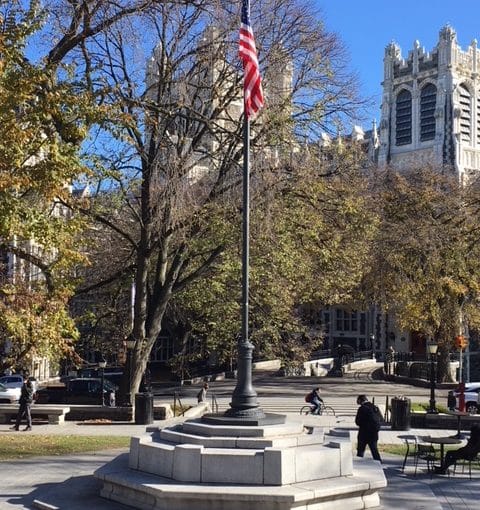by Sindy Nanclares
When news about the Eric Garner verdict took over the Twitter feed, it hit me. My high school American history teacher lied to me.
Mrs. Reilly talked about the civil rights movement with a lot of passion. She made me fall in love with the idea of people standing up for what was right and leaders who heard the people’s cry. I even wished that I was born in that era and could have been part of the movement that pushed for change.
I knew a lot of things needed improvement, but I believed our society was heading in the right direction. Then there was the Michael Brown verdict in Ferguson and a police officer wasn’t indicted for his death.
 When thousands gathered to protest here in New York, I walked from Times Square to the Brooklyn Bridge with a group demanding change. But I thought when a case came to a grand jury in New York, things would be different.
When thousands gathered to protest here in New York, I walked from Times Square to the Brooklyn Bridge with a group demanding change. But I thought when a case came to a grand jury in New York, things would be different.
And then a Staten Island grand jury declined to indict Officer Daniel Pantaleo for the death of Eric Garner.
It opened my eyes. Fair treatment for all seems like a myth, especially when it comes to race and socio-economical background. In some neighborhoods residents rely on the police and call in noise complaints. In other communities, people don’t even bother to call. They hesitate because they worry about what may happen when police arrive.
People in my generation keep up on social media. And the past few weeks have reminded us that police are more likely to profile young African-Americans and Hispanics than others. Social media connected me to millions of other young people who share my disappointment.
Teachers lied to us. Our books cut out the part in which the racial struggle continued past the sixties. Or maybe, we just pretended we could ignore the inequities present in the ‘hoods of the Empire State that most of us don’t visit frequently.




This and your other posts about the Eric Garner and Michael Brown decisions are revealing. It’s good to know what young people are thinking. But it’s not quite true that their teachers lied to them. The Civil Rights Movement of the 1960s did end the “Jim Crow” racial separation laws that existed in the South. But they didn’t, and couldn’t, end horrible racial attitudes. That’s much harder, as William Faulkner told us when he wrote, “The past is never dead. It’s not even past.”